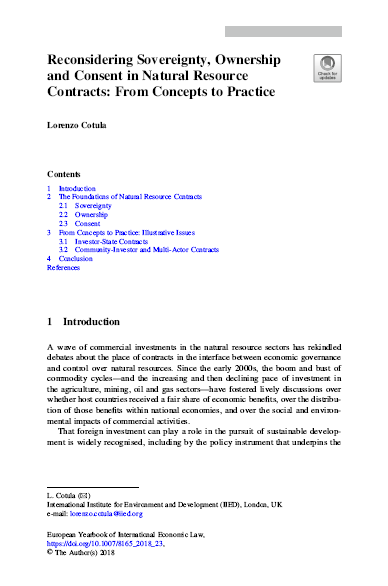Land tenure reform and gender equality
This brief explores the reform of land tenure institutions which re-emerged in the 1990s, and asks if these reforms are any more gender sensitive than those of the past?The paper highlights that a focus of the recent reforms has been on land titling, designed to promote security of tenure and stimulate land markets. The reforms have often been driven by domestic and external neoliberal coalitions, with funding from global and regional organisations which have argued that private property rights are essential for a dynamic agricultural sector.




